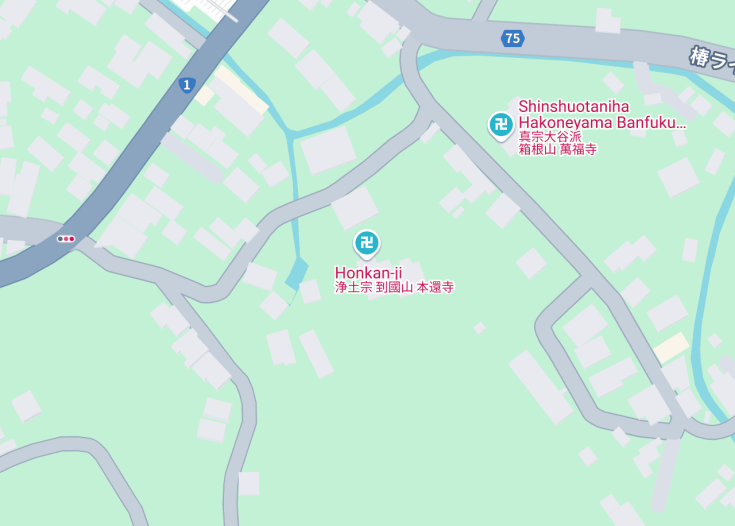Nestled in the serene town of Kyotango, Kyoto Prefecture, Honkan-ji Temple offers a unique blend of spiritual heritage and stunning natural beauty. This ancient temple, dating back to the 13th century, is renowned for its massive camphor tree, believed to be over 400 years old, and its striking wooden architecture. Visitors can immerse themselves in the tranquility of the temple grounds and explore the rich history of the region through various cultural artifacts preserved at the site. Honkan-ji serves not only as a place of worship but also a testament to the enduring spiritual and historical tapestry of Japan.
To fully appreciate the peaceful ambiance of Honkan-ji, consider visiting during the early morning or late afternoon when the temple is less crowded.
If planning a visit to Honkan-ji, don’t miss the opportunity to explore the surrounding area, which is known for its scenic beauty and traditional ryokans.
Discover the Serenity of Honkan-ji
Honkan-ji, located in the picturesque region of Hakone, Japan, is a temple steeped in history and spiritual significance. Renowned for its tranquil setting and architectural beauty, it draws both tourists and spiritual seekers alike. Nestled amidst lush greenery, Honkan-ji serves as an oasis of peace away from the hustle and bustle of city life. Visitors are often captivated by the traditional Buddhist architecture, which features intricate woodwork and serene statues of Buddha that evoke a sense of reverence.
The temple grounds are also home to a variety of rare plant species, each adding to the mystical aura of the place. For those interested in the cultural aspects of Japan, Honkan-ji offers a profound glimpse into the spiritual practices and the serene lifestyle that has been preserved over the centuries. Whether you are seeking solace, inspiration, or a deeper understanding of Buddhist traditions, Honkan-ji in Hakone is a place that truly enriches the soul and calms the mind.
Explore the Spiritual Ambiance
At Honkan-ji, visitors can immerse themselves in a rich tapestry of spiritual activities and architectural marvels. Meditation sessions held in the main hall provide a unique opportunity to experience peace and mindfulness, guided by experienced monks. Another highlight is the strolling garden that features meticulously cared-for flora and a pond, reflecting the changing seasons in a symphony of colors.
For those interested in religious art, the temple showcases an array of ancient scrolls and artifacts that depict the life of Buddha and various other deities. Festivals and ceremonies throughout the year offer a deeper insight into the customs and traditions that are central to the temple’s community.
Admire the Majestic Ginkgo Tree
Honkan-ji is also home to a magnificent and historically significant Ginkgo tree, believed to be over several centuries old. This grand tree not only stands as a symbol of longevity and endurance but also draws visitors especially in the autumn months when its leaves turn a stunning golden yellow, creating a breathtaking visual spectacle. Aside from its beauty, the Ginkgo tree at Honkan-ji is wrapped in legends, often linked to the temple’s foundation and its survival through numerous historical events. Witnessing this tree, especially during the autumn, is considered a must-see highlight for any trip to Honkan-ji.
Explore the spiritual tranquility of honkan-ji
Intended primarily suitable for a diverse range of visitors, including kids, couples, and older individuals, Honkan-ji offers a rich tapestry of cultural and spiritual experiences. Upon visiting, one can expect a journey through beautifully maintained temple grounds, steeped in history and spirituality. This destination serves as a perfect retreat for those looking to escape the hustle and bustle of daily life and delve into a peaceful environment. The architecture and surrounding landscapes are not only breathtaking but also offer a deep sense of serenity and contemplation.
Discover the best times to visit honkan-ji
Visiting Honkan-ji is particularly magical during the spring and fall seasons. These periods feature mild weather and scenic beauty, ideal for exploring the extensive temple grounds and enjoying the outdoor meditative spaces. Spring brings the cherry blossoms, while fall showcases vibrant autumnal leaves, both enhancing the already serene atmosphere of the temple.
Annual temple festival
For a truly unique experience, consider visiting during the annual Temple Lantern Festival. This event features thousands of lanterns lighting up the temple grounds, creating a mesmerizing atmosphere that attracts visitors from across the country.
Accessibility and physical limitations at honkan-ji
Accessibility
Honkan-ji is committed to being accessible to all. Most of the temple grounds are wheelchair accessible, and there are several rest areas throughout the premises.
Limitations
- Steep Stairs: Some areas with steep stairs may not be accessible to those with mobility issues.
- Restricted Sections: Certain sections of the temple, due to their historic nature, are not open to the public
Notes to visitors
- Please respect the serene and sacred nature of Honkan-ji while visiting.
- Photography is allowed but refrain from using flash inside temple structures.
General information
Prepare your visit to Honkan-ji
Location guidelines
Located near ancient forested regions close to the stunning Lake Ashi, getting to Honkan-ji is an experience in itself. The temple is easily accessible by local bus services or even by taking a leisurely hike through scenic routes.
Address: 123 Honkan-ji Lane, Mountain Region, Hakone
Temple hours
Honkan-ji is open daily from 08:00 AM to 05:00 PM. It remains closed on national holidays.
Reaching your destination
By Car
Driving to Honkan-ji from major nearby cities is both scenic and straightforward.
| Route | Distance | Travel time |
|---|---|---|
| From Tokyo | 75 miles (120Km) | Approx. 2 hours |
| From Yokohama | 60 miles (97Km) | Approx. 1.5 hours |
| From Nagoya | 200 miles (322Km) | Approx. 4 hours |
By Train
Trains run frequently from Tokyo and Yokohama to the nearest station, which is then a 30-minute bus ride to Honkan-ji.
| City | Train travel time | Additional bus travel |
|---|---|---|
| Tokyo | 90 minutes | 30 minutes |
| Yokohama | 70 minutes | 30 minutes |
Nearby attractions
The following attractions are located close to Honkan-ji and are worth visiting:
- Lake Ashi – 5 miles (8 km)
- Ancient Cedar Avenue – 2 miles (3.2 km)
- Hakone Shrine – 6 miles (9.7 km)
- Owakudani Volcanic Valley – 10 miles (16 km)
- Hakone Open Air Museum – 12 miles (19.3 km)
- Gora Park – 14 miles (22.5 km)
- Hakone Ropeway – 11 miles (17.7 km)
- Togendai Viewpoint – 13 miles (20.9 km)
- Sengokuhara Pampas Grass Fields – 15 miles (24.1 km)
- Historic Hakone Checkpoint – 7 miles (11.3 km)
- Hakone Tozan Railway – 9 miles (14.5 km)
- Susuki Prairie – 16 miles (25.7 km)
Common questions
What historical significance does Honkan-ji hold?
What are the main attractions at Honkan-ji?
Does Honkan-ji have any unique rituals or ceremonies?
Are there any community activities associated with Honkan-ji?
What kind of architecture can be seen at Honkan-ji?
Is photography allowed inside Honkan-ji?
Can non-Buddhists participate in events at Honkan-ji?
What is the best time of year to visit Honkan-ji?
Does Honkan-ji offer any educational programs or guided tours?
Are there any specific rules or etiquette to follow when visiting Honkan-ji?
What types of meditation or spiritual practices can visitors learn at Honkan-ji?
Are there any accommodations or facilities for international visitors at Honkan-ji?

Is Honkan-ji in Hakone worth a visit?
The Honkan-ji Temple in Hakone is truly a hidden gem that deserves attention. Nestled in the lush landscapes of the region, its tranquil environment provides a perfect retreat from the bustling tourist spots. Known for its pristine gardens and traditional architecture, this temple offers a glimpse into the spiritual and historical essence of Japan. While it may not boast the grandeur of larger, more famous temples, its intimacy and peacefulness are what make it particularly appealing to those who appreciate a more reflective experience. However, it’s essential to note that the facility lacks extensive amenities, which might be a drawback for some visitors expecting more commercial attractions or guided tours.









